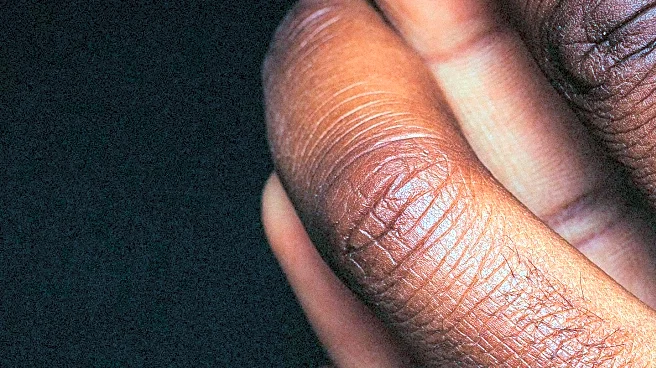What's Happening?
A recent article emphasizes the importance of realistic self-care practices tailored for Black communities, moving beyond the superficial aspects often associated with self-care. The article highlights the need for sustainable habits that protect mental health and emotional well-being, acknowledging the impact of systemic racism and economic inequality. It provides a toolkit that includes setting boundaries, grounding techniques, movement as medicine, digital detox moments, and prioritizing rest. The article also lists affordable mental health resources and apps designed to support Black individuals, emphasizing the cultural layer of self-care.
Why It's Important?
This article is crucial as it addresses the unique challenges faced by Black communities in maintaining mental health. By offering practical and culturally relevant self-care strategies, it empowers individuals to take control of their well-being in a society that often overlooks their needs. The toolkit can help reduce stress and burnout, promoting resilience and mental health equity. It also highlights the importance of accessible mental health resources, which can bridge gaps in care and support for Black individuals.
What's Next?
Community organizations and mental health advocates may use this toolkit to develop programs that support Black individuals in their self-care journeys. There could be increased efforts to raise awareness about the importance of culturally relevant mental health practices. Policymakers might consider funding initiatives that provide affordable mental health resources to underserved communities. Further research could explore the effectiveness of these practices in improving mental health outcomes.
Beyond the Headlines
The article prompts discussions on the intersection of race, culture, and mental health. It challenges the mainstream narrative of self-care, advocating for practices that resonate with the lived experiences of Black individuals. This perspective could lead to broader conversations about cultural competence in mental health care and the need for systemic changes to address disparities in access and treatment.










